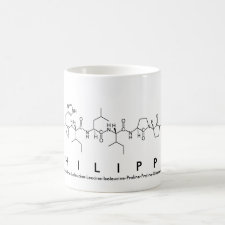
Authors: Lopez C, Claude B, Morin P, Pelissou M, Pena R, Max JP, Ribet JP
Article Title: Synthesis and study of a molecularly imprinted polymer for specific solid-phase extraction of vinflunine and its metabolite from biological fluids.
Publication date: 2011
Journal: Journal of Separation Science
Volume: 34
Issue: (15)
Page numbers: 1902-1909.
DOI: 10.1002/jssc.201100015
Abstract: Abstract: A molecularly imprinted polymer (MIP) was synthesized in order to specifically extract vinflunine, an anticancer agent, and its metabolite (4-O-deacetylvinflunine) from bovine plasma and artificial urine by solid-phase extraction (SPE). Vinorelbine, a non-fluorinated analogue of vinflunine, was selected as a template for MIP synthesis. The selectivity of MIP versus the template (vinorelbine) and other alkaloids (catharanthine, vinblastine, vincristine, vinflunine and 4-O-deacetylvinflunine) was shown by a SPE protocol carried out with non-aqueous samples. A second protocol was developed for aqueous samples with two consecutive washing steps (AcOH - NH2OH buffer (pH 7, I=10 mM) - MeOH mixture 95:5 v/v and ACN - AcOH mixture 99:1 v/v) and an elution step (MeOH - AcOH mixture 90:10 v/v). Thus, MIP-SPE of bovine plasma brought high recoveries, 81 and 89% for vinflunine and its metabolite, respectively. This protocol was slightly modified for artificial urine samples in order to obtain a good MIP/NIP selectivity; furthermore, elution recoveries were 73 and 81% for vinflunine and its metabolite, respectively. Repeatability was assessed in both biological matrices and RSD (%) were inferior to 4%. The MIP also showed a suitable linearity (r2 superior to 0.99), between 0.25 and 10 μg/mL for plasma, and between 1 and 5 μg/mL for artificial urine
Template and target information: vinorelbine, vinflunine, 4-O-deacetylvinflunine
Author keywords: biological fluids, Metabolite, molecularly imprinted polymer, SPE, Vinflunine



Join the Society for Molecular Imprinting

New items RSS feed
Sign-up for e-mail updates:
Choose between receiving an occasional newsletter or more frequent e-mail alerts.
Click here to go to the sign-up page.
Is your name elemental or peptidic? Enter your name and find out by clicking either of the buttons below!
Other products you may like:
 MIPdatabase
MIPdatabase









